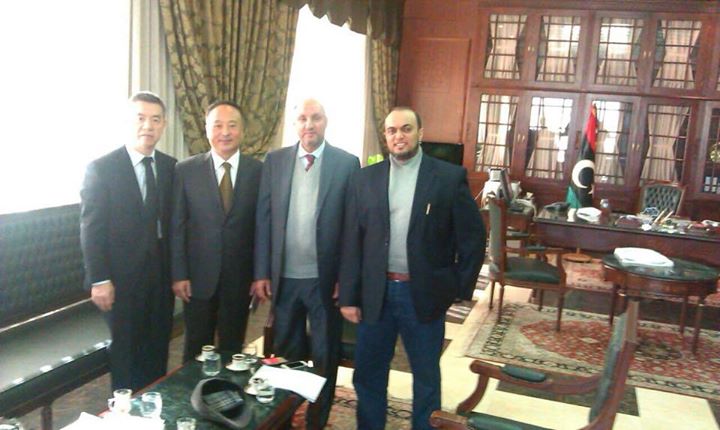By Libya Herald staff.

Tunis, 1 March 2015:
China is to send humanitarian aid to Libya to help internally displaced people there, according . . .[restrict]to Benghazi House of Representatives (HoR) member Tariq Geroushi.
In a post in his Facebook page, Geroushi, the son of the commander of the Libyan air force, said that the aid would arrive next week.
The disclosure follows talks in Tunis between him and the Chinese ambassador to Libya, Li Zhiguo, who, Geroushi noted, had reiterated Beijing’s recognition of the HoR and the Thinni government.
The meeting was arranged by the Libyan Ambassador to Tunis, Mohamed Al Maalul. It was also attended by the Chinese military attaché to Libya.
According to the UNHCR, there were 64,000 internally displaced people in Libya as of July 2014. The figure is said to have climbed at least sevenfold since then as a result of fighting in both the west and the east. In mid-November, the UNHCR said that almost 400,000 Libyans were displaced and that in the previous month some 100,000 had fled their homes because of fighting – 56,500 from Benghazi alone.
It is now thought that over 100,000 Benghazinos have flef their homes.
In a potentially even more significant development, Geroushi claimed that China had offered to provide training for the Libya army as well as unspecified equipment and explosives experts to help it in the fight against terrorism.
In Beijing meanwhile, Chinese Foreign Minister Wang Yi, in a meeting with his Egyptian counterpart, Sameh Shukri, who arrived there on Friday, is reported to have discussed ways to support the Thinni government and prevent arms being supplied to terrorist groups in Libya.
The potential new relationship with China follows the same pattern as with Russia. Both had been close partners with the Qaddafi regime and consequently fell firmly out of favour after the revolution as Libya swung westwards, viewing the US and Europe as its main allies. However, this is now changing as the US and the UK in particular take the position that Libya cannot be given any arms to fight IS until a government of national unity is installed.
Last month former foreign minister Mohamed Abdulaziz who now serves as the HoR’s ambassador-at-large was in Moscow looking to to a new military relationship with the Russians. Although Moscow is reported to be extremely interested it is not clear how this is developing. Prime Minister Abdullah Al-Thinni was widely reported to be heading to Russia to discuss military support after last week’s visit to Cairo, but in the event he returned to Libya. [/restrict]





